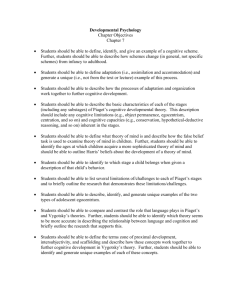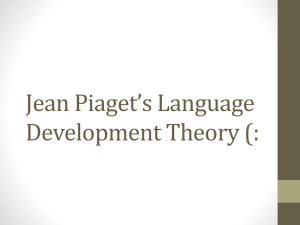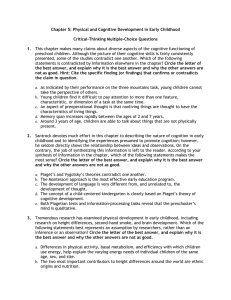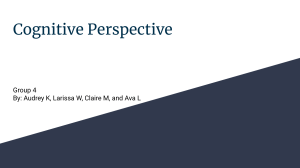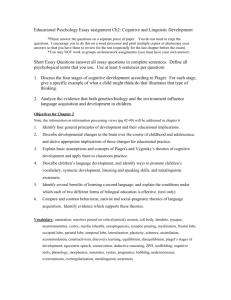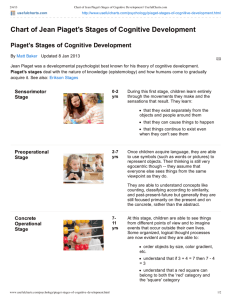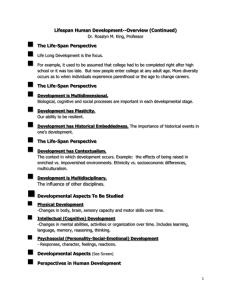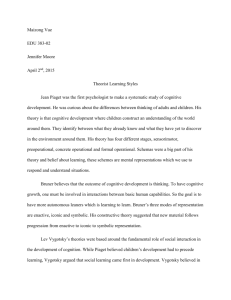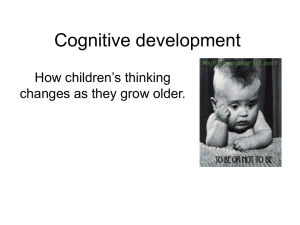Education 173 Cognition and Learning in Educational Settings
advertisement
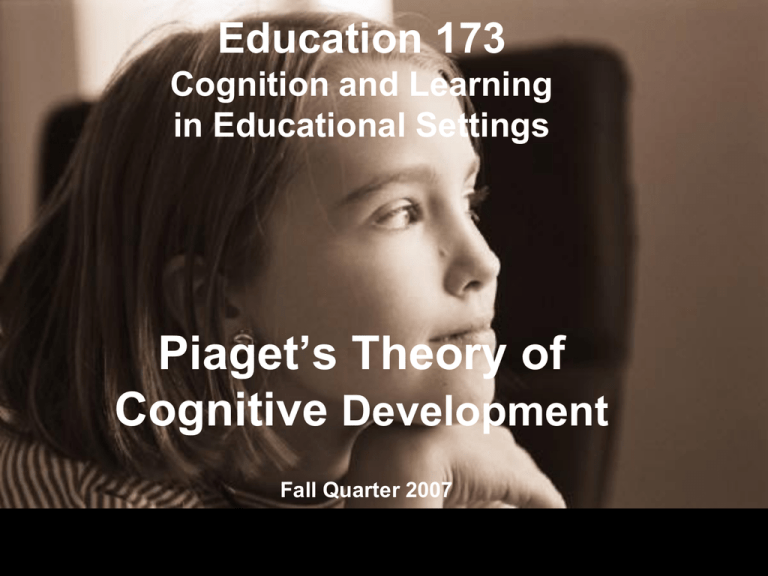
Education 173 Cognition and Learning in Educational Settings Piaget’s Theory of Cognitive Development Fall Quarter 2007 What is Development? • Learning vs. Development • Types of Development – – – – – Cognitive Physical Social Emotional Moral 4/9/2015 2 Themes in Development • Nature vs. Nurture – Genetics or experience • Continuity vs. Discontinuity – Ramp or staircase? • Biological “unfolding” – Like a butterfly • Implications: Readiness to learn 4/9/2015 3 Jean Piaget • Assimilation – Means to fit experience to existing cognitive structures • Accommodation – Means to change cognitive structures in response to experience – In order to make internal (cognitive structures) and external (experience, perception) compatible – In response to disequilibrium • (incompatibility of knowledge with experience) 4/9/2015 4 Piagetian Stages • Sensorimotor (Birth to 2) – “Understanding is rooted in present action” – Object permanence as early as one year • Preoperational (2 to 7) – Egocentrism – Lack of conservation; Irreversibility • Concrete Operational (7 to 11) – Reversibility of operations – Classification (multi-way); seriation • Formal Operational (11 to Adult) – Abstract and hypothetical reasoning 4/9/2015 5 Neo-Piagetian Theory • The American Challenge – Decalage: Uneven development • Children can sometimes think abstractly – Domain specificity of stages • Sometimes dependent on knowledge – e.g., about dinosaurs • Processing constraints are relevant – Such as working memory • Robbie Case’s Theory – WM increases with age/experience – Chunking/automaticity important – Control processes important 4/9/2015 6 Jerome Bruner • Knowledge Representation Enactive – Enactive (motor) – Iconic (mental images) Concrete – Symbolic (e.g., text, numerals) Iconic Symbolic Abstract • Not a Stage Theory – Rather, an accumulation of representations • Bruner’s Bold Claim – Any content can be taught in meaningful fashion to learners of any age – A bit of a challenge to Piaget 4/9/2015 7 Cognitive Changes in Development • Executive Control (Metacognition) Improves • WM Capacity Increases • Automaticity Increases • Specific Knowledge Accumulates Source: ww.brown.edu/Research/Memlab/py47/diagrams.html 4/9/2015 8 Socioeconomic Status • SES Includes Both – Family income – Parent education levels • SES is Descriptive, Not Explanatory – What are the proximal causes? – Computers, books, games, travel – Language? Values? • Are Schools & Classrooms Middle Class Institutions? • Are Role Models Important for Promoting Social Mobility? 4/9/2015 9 Other Influences On Development • Home Environment – – – – Not the same as SES Presence of books Question asking Encouragement for exploration – Amount of adult-child language • Peer Influence • Parental Involvement in Schools 4/9/2015 10

